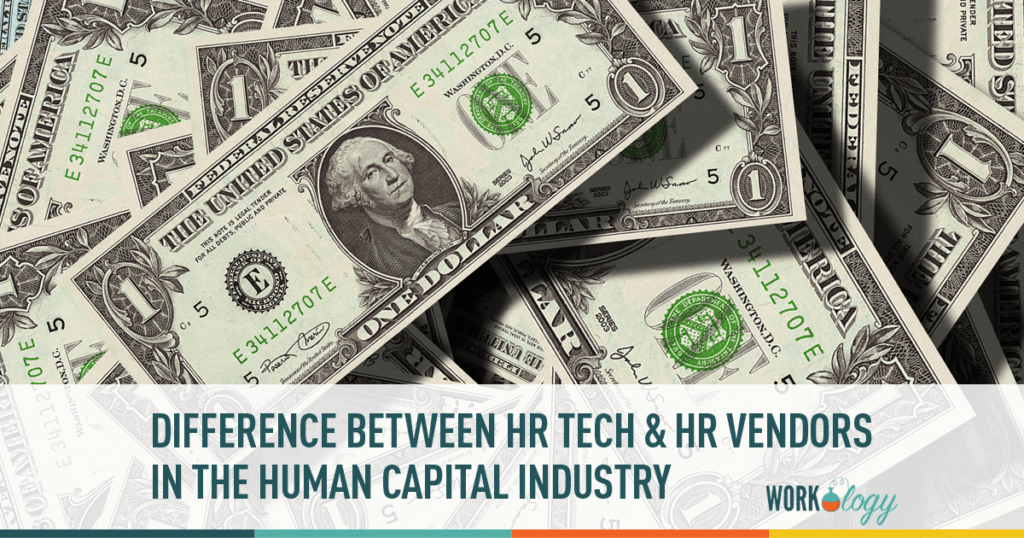Download my HR Technology Guide and Checklist for suite products by clicking here. Includes a handy checklist to help you in selecting the best HR tech.
Last week, I launched the first in a series and put the spotlight on women who work in human resources technology. We published our first list of female entrepreneurs, co-founders, and CEOs who are creating products for the human capital industry’s HR and recruiting practitioners. You can read the first installment by clicking here. As most lists do, it was popular and sparked some points of debate in certain circles about what makes a company that works in HR as an HR technology.
Difference Between HR Tech & HR Vendors in the Human Capital Industry
Companies that offer software or platforms, such as an applicant tracking system, assessment tool, or platform for video interviews, that support and/or improve the duties of HR and recruiting practitioners are considered HR technology companies. In my opinion, “enhancing the job responsibilities of a practitioner” is the key differentiator. I’ve identified previously a list of HR practitioner job titles that I believe these HR technologies need to support in order to be considered a form of HR tech. In order to be considered a true HR technology, companies need to provide service whether is cloud based or on-premise to this list of practitioners who are fuel behind this industry.
HR/Recruiting Coordinator
HR/Recruiting Specialist
Sourcing Roles (Coordinators, Specialists, Managers, and/or Directors)
HR/Recruiting Manager (Also Manager of Talent Acquisition or People)
HR/Recruiting Director (Also Directors of Talent Acquisition or People)
VP of HR
Employment Branding/Recruitment Marketing Roles (Coordinators, Specialists, Managers and/or Directors)
Having defined who a practitioner is, I wanted to further explain and clarify my definition of what is truly HR tech as this was much of the debate that filled my inbox last week. HR technology companies are those that provide a software or platform such as an applicant tracking system, assessment tool or video interviewing platform that provides support and/or enhances the job responsibilities of HR and recruiting practitioners. A practitioner is one of six common roles in HR technology.
1) Practitioners and end users (job titles listed above)
2) CEO and/or senior business leader (Depending on size of company and HR structure, CEOs, CFO and COOs may be involved in the HR technology purchase process. It’s unlikely that they will be a heavy user of the HR tech.)
3) HR technology products (and its staff whether sales, marketing, support or service)
4) Services that utilize technology but are primarily viewed as service or support (RPO, consultants, HR technology implementation firms, and staffing companies fall into this category)
5) HR Technologists (Includes analyst firms, experts and thought leaders)
6) Technologies in HR that service technologists, vendors or marketing functions (PR, Marketing and advertising firms as well as in some consultants; online media and web properties; and companies who support HR technologists primarily)
Some persons or organizations might fall into several of these categories. I’ll discuss these six categories and parameters in more detail in future posts as part of this series. Until then enjoy my first post in my women in HR technology series by clicking here.
How do you determine the difference between a service in HR and an HR technology?
Download my HR Technology Guide and Checklist for suite products by clicking here. Includes a handy checklist to help you in selecting the best HR tech.










One Comment
It’s quite easy to understand your information about Applicant Tracking System.
Comments are closed.